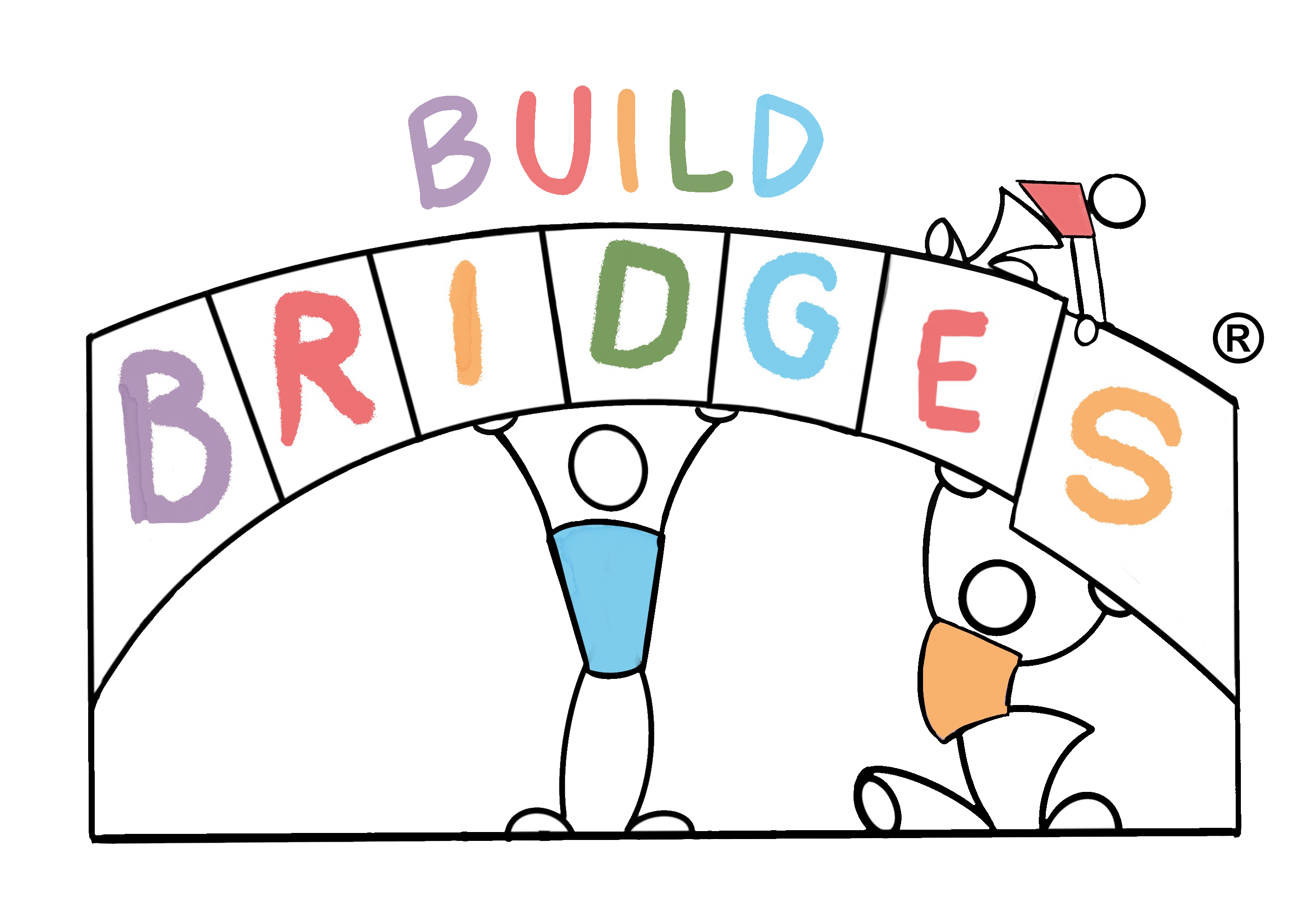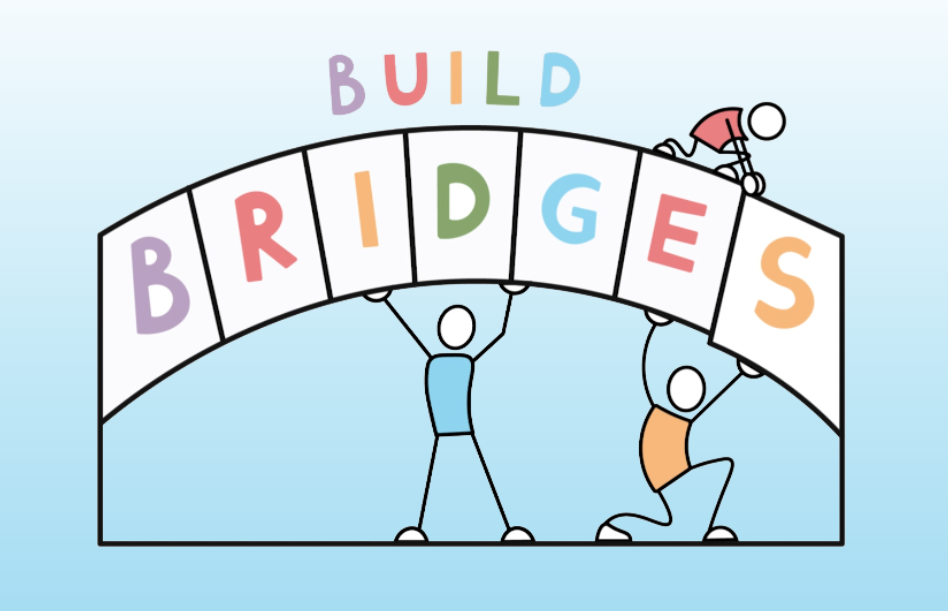Build Bridges
Online training on better ways to talk to children about why they are in care and what this means.
Designed for social workers and foster carers to make it easier to communicate with children who find themselves in difficult situations.
Feel comfortable, confident and competent in the real world situation when difficult conversations arise.
Experience experts who help fill the gaps in social care textbooks. Training for real world situations.
Build Bridges Narrative Model Training
When children enter care they are often left with many questions that are challenging for adults to discuss with them:
- why am I in care?
- why do I live here?
- when can I go home?
Left unanswered, children can have great difficulty experiencing psychological safety, adjusting to their new circumstances and accepting the care being offered to them.
Dr William Coman, Ms Lynda McGill and some colleagues have developed a model for communicating with children about difficult issues such as entry to care, transitions to new placements and permanence that promotes psychological safety for the child and congruence in the caregiver network.
Anecdotal evidence suggests the model is helpful for the children and all involved in their care as indicated by reductions in placement strain and feedback from carers, social workers, birth parents and children themselves.

Build Bridges is a method for applying the Narrative Model in a procedural way. It can be used to communicate with children about difficult issues at any point in their journey with Social Services.
Managing those tough conversations with children in the care system
Teaching the gaps that are left out of the textbooks for social workers
Feel comfortable, confident and competent in the real world situation when the conversation arises
Created by experts Dr William Coman and Ms Lynda McGill
Learn more about the people behind Build Bridges
Dr William Coman , Ms Lynda McGill and some colleagues have developed a model for communicating with children about difficult issues such as entry to care, transitions to new placements and permanence that promotes psychological safety for the child and congruence in the caregiver network.
THE AUTHORSSocial workers’ experiences
Social workers’ experiences of using the narrative model to talk to children about why they are in care and other sensitive issues.
Testimonials
I just wanted to say I have completed the Build Bridges online training today and loved it. Having worked with you over recent times I was really able to relate the guidance in practical terms; you most certainly “model the model” every time we meet, and I feel so privileged that our paths have crossed. I really did pause and explore my thoughts around the R/Reflect on self. So often we bypass the stuff that is going on for us as practitioners and instead we just plough on with task. I am definitely going to be more mindful of what I need to do to feel safe enough in practice and communicate this too, so I feel less burdened at the end of the week!
Thanks again. Brilliant training.
Louise Rew, Project Co-ordinator & Counsellor Barnardo's Beacon and Worcestershire Positive Steps
Just finished your Building Bridges and just wanted to send an email to let you know how useful and thoughtful it was. I wish I had guidance like this many years ago when working in child protection and child in care teams, it would have been invaluable. Thank you.
Clare Gleeson, Origins Foster Care
Peer reviewed papers
Anecdotal evidence suggests the model is helpful for the children and all involved in their care as indicated by reductions in placement strain and feedback from carers, social workers, birth parents and children themselves.
the evidenceWhy am I in care?
A model for communicating with children about entry to care that promotes psychological safety and adjustmentRead paper
Social workers’ experiences
Experiences of using the narrative model to talk to children about why they are in care and other sensitive issuesRead paper
The Narrative Model
A model for communicating with looked after children about challenging issues.Read paper
Instant Access Online Training
The Instant Access Online Training lasts four hours and includes handouts, a mix of slides & interactive slides, voice-overs, animations and videos to help staff remain engaged with the content. The content includes a detailed description of the model and a work-through of the model as applied in a case study. There is a certificate of attendance for those who complete the end of training assessment.
Self-paced learning means that staff can complete the training at a time of their choosing; they can also pause and revisit the training in the event they need to prioritise other work temporarily.
4 hours online training
Handouts and slides included
Animations and videos
Certificate of attendance

Got questions? We've got answers.
Learn more about how Build Bridges can support you in either your carer or foster journey, understand additional support we offer and find the information you need quickly and easily.
Further Training in the Narrative Model
We have a number of trainings/tutorials that complement Build Bridges and we run on an occasional basis depending on demand. These include:
- Training in Build Bridges for foster carers and Family Placement Social Workers
- Tutorial focussed on similarities and differences between the Narrative Model, Lifestory Work and the Words and Pictures approach that supports decision making on which is the best fit for your case
- Further training on Playfulness, Acceptance, Curiosity and Empathy – the DDP – the “Golden thread” through all narrative model work
You can register your interest by contacting admin@psychologicalpathways.com
Consultations to organisations
We also provide consultations to organisations who are considering issues such as:
- how to integrate the model with existing policies and procedures
- training large numbers of staff
- developing a clinic internal to their organisation that can support staff apply the model after training
- Supervision in the model
You can register your interest by contacting lynda@psychologicalpathways.com who will arrange the Consultation with you.
Narrative Model Support Sessions
These sessions are open to those who have completed Build Bridges Training and are seeking help with a narrative or further discussion of some aspect of the model.
Support Sessions can include help to:
- identify the priority narrative for the child at this time
- Get feedback on a narrative already started
- navigate issues to do with the caregiving network
- find developmentally sensitive words
- plan the delivery of the narrative
- reflect on the child’s response to a narrative and identify the next therapeutic steps
- Reflect on own response to undertaking this work
They are provided by Ms. Lynda McGill (Specialist Therapeutic Practitioner) – one of the original authors of the Narrative Model articles.
Support sessions typically last one hour and are by videoconference.




